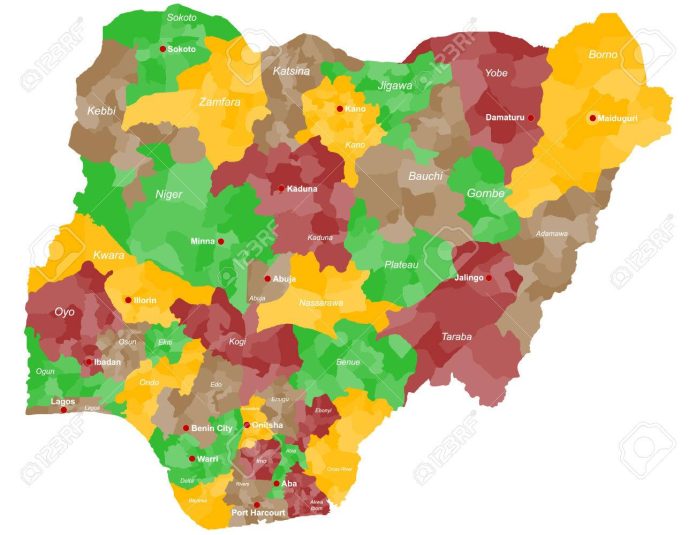Nigeria, a country blessed with abundant resources and resilient people, stands at a crossroads where the leadership crisis casts a shadow over its economic progress. The oil-dependent economy has faced fluctuations, unemployment rates are soaring, and poverty remains widespread. The global pandemic exacerbated these challenges, laying bare the fragility of Nigeria’s economic foundations.
The landscape of Nigeria’s leadership reveals glaring inadequacies across various domains. Political leaders wield authority granted by the people, but often find themselves mired in corruption and power struggles and lack of visionary statesmanship that hinder progress. Religious figures hold authorization from divine sources, yet some have strayed from the path of righteousness, leading their followers astray. Religious institutions often find themselves embroiled in controversies, distracting from their core message of unity and compassion.
Community leaders which are meant to empower and uplift, are sometimes embroiled in self-serving agendas, while the communities grapple with issues of marginalization, infrastructural decay, and insecurity. In the business world, where authority is derived from expertise and success, ethical lapses tarnish this legitimacy. Furthermore, the business sector faces bottlenecks due to inconsistent policies, inadequate infrastructure, and a challenging business environment.
As we witness the struggles of the economy and the discontent within the populace, it is imperative for Nigerians to adopt a mindset of optimism and resilience in the face of adversity. Instead of seeing the cup as half empty, we must strive to view it as half full, for it is in this perspective that we find the seeds of hope and the catalyst for positive change. As Sun Tzu puts it, *”In the midst of chaos, there is also opportunity.”* Without any doubt, *”every cloud has a silver lining,”* and *”it’s always darkest before the dawn.”*
As the scripture reminds us, *”For I know the plans I have for you, plans to prosper you and not to harm you, plans to give you hope and a future”* (Jeremiah 29:11). Proverbs 13:12 further serves as a beacon of light in the darkness, urging us to hold onto our hopes and dreams for a better Nigeria, knowing that perseverance will eventually lead us to the path of progress. The words of Albert Camus resonate deeply: *”In the depth of winter, I finally learned that there was in me an invincible summer.”* This existential perspective invites us to discover our inner strength and resilience, even in the face of seemingly insurmountable challenges.
Philosophical wisdom also guides us on this journey of optimism. As the ancient proverb states, *”Smooth seas do not make skillful sailors.”* In the crucible of adversity, Nigerians have the opportunity to hone their resilience, adaptability, and determination. It is through these trials that true leadership emerges, driving positive change and sustainable growth. Let us heed the wisdom of the Yoruba proverb, *”A ki i sun, a ko le yanju; oju oni ti a n ya furo ni.”* Translated as *”We cannot pretend to sleep, for we cannot deceive the eyes of the day,”* this proverb underscores the importance of transparency and honesty in our actions, both as leaders and as citizens.
While peaceful protests serve as a powerful fundamental tool for voicing grievances, demanding accountability, and fostering societal change, it is essential to acknowledge the risks associated with civil unrest and protests in the Nigerian context. Recent history has shown us that protests can quickly escalate into violence when hijacked by hoodlums and state actors with nefarious intentions. This leads to wanton destruction of lives and properties, exacerbating an already precarious situation.
To effect lasting change, it is crucial for Nigerians to channel their energies towards constructive dialogue, advocacy for policy reform, and active participation in governance processes. Engaging in peaceful protests should be tempered with a deep commitment to safeguarding lives and properties, promoting unity, and upholding the rule of law. By embracing a culture of non-violence, resilience, and collaboration, Nigerians can harness the power of collective action to drive meaningful change.
In conclusion, the path to a brighter future for Nigeria lies in the hands of its people. By embracing optimism, resilience, and a constructive mindset, Nigerians can overcome the current leadership crisis and pave the way for a more prosperous and inclusive society. Let us heed the words of wisdom and take to heart the ancient idiomatic wisdom that reminds us: “A smooth sea never made a skilled sailor.” It is in times of turbulence and uncertainty that true leaders are forged, and it is through collective resolve and unwavering hope that Nigeria will emerge stronger and more resilient than ever before.
Let us remember the wise words of the Yoruba proverb that says, “Iwa l’ewa,” meaning character is beauty. Let our collective character shine brightly as we strive for a better Nigeria, where optimism prevails and hope reigns supreme. Likewise, the Igbo proverb that says *”Ị nwere ihe nkiri, ị nwere ihe egwu,”* meaning *”if you have a challenge, you also have a solution,”* encourages Nigerians to be resilient and optimistic in the face of challenges, reminding us that we possess the strength and ability to overcome any obstacle. Congratulations and welcome to August, 2024. God is with us!
Prof. is a renowned Economist, Certified Public Accountant, Financial Management, Public Policy Analyst, Gender Expert, Public Service Management.


